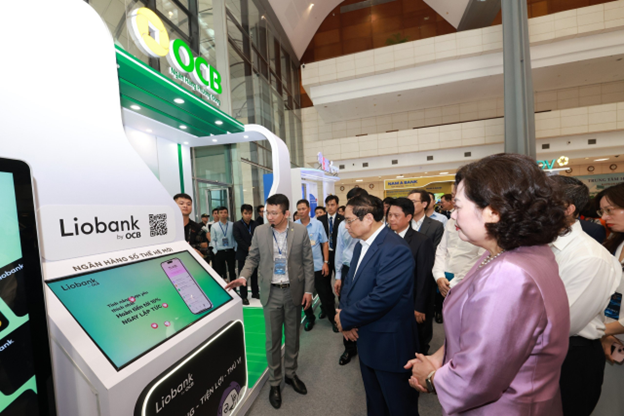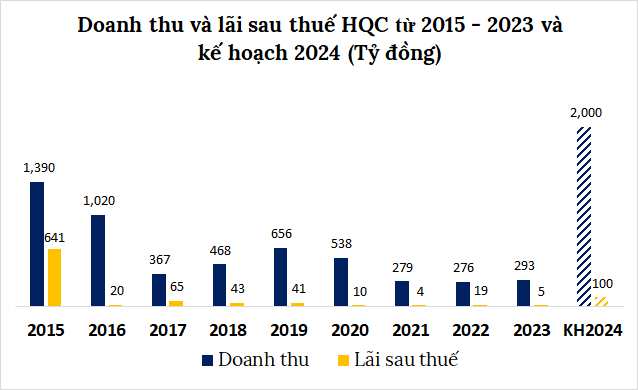At the 6th session of the National Assembly, a resolution on the application of a global minimum tax (GMT) from January 1, 2024 was passed to prevent erosion of the global tax base. The implementation of the GMT will bring both opportunities and challenges in attracting foreign direct investment (FDI) in Vietnam.
Adjusting preferential mechanisms and supporting new investments
According to Minister of Planning and Investment Nguyen Chi Dung, the GMT is a fundamental change in the structure of international taxation, designed to limit profit shifting and tax competition of multinational corporations and prevent “race to the bottom” tax model among countries.
When applying a 15% GMT rate, the corporate income tax incentives currently applicable in Vietnam will no longer be meaningful for companies with consolidated global revenue over 750 million euros, leading to a loss of competitiveness in attracting and retaining these businesses.

(Illustrative photo: KT)
While developed countries are urgently and proactively implementing this rule, developing countries are carefully considering the problem of increasing revenue through the application of the Minimum Domestic Tax Threshold (QDMTT) while still ensuring continued competition in attracting FDI through the issuance of new suitable incentives.
Therefore, Minister Nguyen Chi Dung believes that a comprehensive evaluation of the system of investment incentive policies and laws is needed to supplement and adjust new investment support mechanisms to ensure the competitiveness and attractiveness of the investment environment.
Regarding FDI attraction opportunities, Minister of Planning and Investment stated: Gain additional tax levies on companies with consolidated global revenue over 750 million euros operating in Vietnam and from Vietnamese corporations investing abroad, prevent tax outflows to other countries, and supplement state budget revenues.
The implementation of the GMT is an impetus to accelerate the process of transformation and issuance of new policies, narrowing the gap between domestic law and international practices, and contributing to the country’s development and integration process. At the same time, it is also an opportunity to review and update investment incentives policies, thereby constantly improving the investment business environment in Vietnam.
However, Minister Nguyen Chi Dung also pointed out some challenges when implementing the GMT: reducing the competitiveness of the business investment environment in Vietnam, thereby affecting the target of attracting FDI.
Difficulty in attracting large-scale investment projects, especially projects that enjoy special investment incentives. Retaining large investors and encouraging businesses to expand their investment in Vietnam will be difficult without timely measures.
Therefore, the application of this policy needs to raise questions: How to retain foreign investors, ensuring competitiveness and attractiveness of the investment business environment in Vietnam.
Ensuring competitiveness and investment attractiveness
Vietnam will apply 2 regulations: Comprehensive income tax minimum regulations applied to Vietnamese corporations investing abroad, and additional minimum domestic regulations meeting standards applied to multinational corporations operating in Vietnam.

The implementation of the GMT will directly affect the interests of foreign-invested enterprises enjoying low corporate tax benefits. Therefore, in order to retain large investors, as well as the competitiveness and attractiveness of the investment environment, effective solutions for investors need to be provided. (Illustrative photo)
According to Hong Sun, Chairman of the Korea Chamber of Commerce in Vietnam (KOCHAM), the average global minimum tax is about 7-8%. Developed countries are applying many measures to support investments as a compensation for the amount they have to pay.
“If the Vietnamese Government wants to attract investment in high-tech and semiconductor industries, it needs support and committed stability so that businesses are willing to invest billions of dollars,” said Hong Sun.
Phan Duc Hieu, permanent member of the Economic Committee of the National Assembly, emphasized that the GMT policy has a short-term impact, but long-term considerations must be made. Supplementary policies must be applied equally to all relevant parties, be long-term and comply with OECD principles.
“Measures must be extremely cautious of WTO’s subsidy procedures and regulations. According to the advice of experts, focus should be placed on cost deduction based on certain WTO criteria, such as production and business costs, investment in labor, investment in development, investment in new trends such as carbon minimization or environmental costs,” Phan Duc Hieu stated.
To minimize the negative impact of the GMT on attracting investment in Vietnam, representatives of the tax authority also affirmed that direct or indirect financial support solutions are needed, but they must guarantee compliance with GMT regulations, be compatible with international commitments and norms, ensure transparency and minimize adverse effects on the investment environment.






































